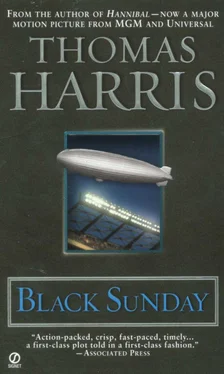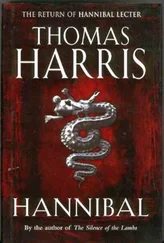Externally she was molding fast. Bloomingdale’s and Bon wit Teller, Lord & Taylor and Saks were the touchstones in her Saturday rounds. She would have looked like a trim Jewish matron, expensively turned out and just a little behind the trends, if she had not spoiled the effect with defiant touches, a hint of the street. For a time she had resembled a woman fighting her thirties with her daughter’s accessories. Then she didn’t give a damn what she wore anymore and lapsed into quiet business dress because she didn’t have to think about it. Her working hours grew longer, her apartment grew tidier and more sterile. She paid an exorbitant price for a cleaning woman who could remember to put everything back precisely as it had been before.
Now, here was Kabakov, poking through her bookshelves and gnawing on a piece of salami. He seemed to delight in examining things and not putting them back where he found them. He had not put on his slippers and he had not buttoned up his pajama jacket. She would not look at him.
Rachel was no longer so concerned about the concussion. He did not seem to worry about it at all. As his periods of dizziness grew less frequent, then abated altogether, their relationship changed. The impersonal doctor-patient attitude she had tried to maintain began to soften.
Kabakov found Rachel’s company stimulating. He felt a pleasant necessity to think when talking with her. He found himself saying things that he had not realized he felt or knew. He liked to look at her. She was long-legged and given to angular positions, and she had durable good looks. Kabakov had decided to tell her about his mission, and because he liked her he found it difficult to do. For years he had guarded his tongue. He knew that he was susceptible to women, that the loneliness of his profession tempted him to talk about his problems. Rachel had given him help when he needed it, immediately and with no unnecessary questions. She was involved now and could be in danger—the reason for the assassin’s visit to the radiology lab was not lost on Kabakov.
Still, it was not his sense of justice that led him to tell her, no feeling that she had a right to know. His considerations were more practical. She had a first-rate mind and he needed it. Probably one of the plotters was Abu Ali—a psychologist. Rachel was a psychiatrist. One of the terrorists was a woman. Rachel was a woman. Her knowledge of the nuances of human behavior, and the fact that, with this knowledge, she was a product of the American culture, might give her some useful insights. Kabakov believed that he could think like an Arab, but could he think like an American? Was there any way to think like an American? He had found them inconsistent. He thought that perhaps when the Americans had been here longer, they might have a way of thinking.
Sitting by a sunny window, he explained the situation to her as she dressed the burn on his leg. He started with the fact that a Black September cell was hidden in the Northeast, ready to strike somewhere with a large quantity of plastic explosive, probably half a ton or more. He explained from Israel’s point of view the absolute necessity of his stopping them, and he hastily added the humanitarian considerations. She finished the bandaging and sat cross-legged on the rug listening. Occasionally she looked up at him to ask a question. The rest of the time he could only see the top of her bent head, the part in her hair. He wondered how she was taking it. He could not tell what she was thinking, now that the deadly struggle she had witnessed in the Middle East had come home to this safe place.
Actually, she was feeling relieved about Kabakov himself. Always she wanted to know specifics. Exactly what had been done and said—especially just before the blast at Muzi’s house. She was glad to see that his answers were immediate and consistent. When questioned at the hospital about his most recent memories he had given the doctor vague replies, and Rachel could not be sure whether this was deliberate evasion or the result of head trauma. She had been handicapped in evaluating Kabakov’s injury by her reluctance to ask him specifics. Now, her minute questioning served two purposes. She needed the information if she was to help him, and she wanted to test his emotional response. She was watching for the irritability under questioning that marks the Korsakoff, or amnesic-confabulatory syndrome, which frequently follows concussion.
Satisfied with his patience, pleased with his clarity, she concentrated on the information. He was more than a patient, she was more like a partner as the story was completed. Kabakov concluded with the questions that were eating at him: Who was the American? Where would the terrorists strike? When he had finished talking he felt vaguely ashamed, as though she had seen him crying.
“How old was Muzi?” she asked quietly.
“Fifty-six.”
“And his last words were ‘First there was the American’?”
“That’s what he said.” Kabakov did not see where this was leading. They had talked enough for now.
“Want an opinion?”
He nodded.
“I think there’s a fair probability that your American is a non-Semitic Caucasian male, probably past his middle twenties.”
“How do you know?”
“I don’t know, I’m guessing. But Muzi was a middle-aged man. The person I described is what many men his age call an ‘American: Very likely, if the American he saw was black, he would have mentioned it. He would have used a racial designation. You spoke English the entire time?”
“Yes.”
“If the American was a woman, very likely he would have said ‘the woman’ or ‘the American woman.’ A man of Muzi’s age and ethnic background would not think of an Arab-American or an American Jew as ‘the American.’ In all cases, black, female, Semitic or Latin, the word American is an adjective. It’s a noun only for non-minority Caucasian males. I’m sounding pedantic probably, but it’s true.”
Kabakov, conferring with Corley by telephone, told the FBI agent what Rachel had said.
“That narrows it down to about forty million people,” Corley said. “No, listen, anything helps, for Christ’s sake.”
Corley’s report on the search for the boat was not encouraging. Customs agents and New York City police had checked every boatyard on City Island. Nassau and Suffolk police had checked every marina on Long Island. The New Jersey state police had questioned boatyard owners along their coast. FBI agents had gone to the best boatyards—to legendary craftsmen like Rybovich, Trumpy, and Huckins—and to the lesser-known yards where craftsmen still built fine wooden boats. None of the yards could identify the fugitive craft.
“Boats, boats, boats,” Rachel said to herself.
Kabakov stared out the window at the snow while Rachel fixed dinner. He was trying to remember something, going at it indirectly, the way he would use peripheral vision to see in the dark. The technique employed in blowing up Muzi teased Kabakov ceaselessly. Where had it happened before? One of the thousands of reports that had crossed his desk in the past five or six years had mentioned a bomb in a refrigerator. He remembered that the report had an old-style jacket, the manila kind, bound along the spine. That meant he had seen it before 1972, when the Mossad changed the bindings to facilitate microfilming. One other flash came to him. A memo on booby-trap techniques issued to commando units on his orders years ago. The memo had explained mercury switches, then in fashion among the fedayeen, with an addendum on electrical appliances.
He was composing a cable to Mossad headquarters with the scraps of information he recalled when quite suddenly he remembered. Syria 1971. A Mossad agent was lost in an explosion at a house in Damascus. The charge had not been heavy, but the refrigerator was shattered. A coincidence? Kabakov called the Israeli consulate and dictated the cable. The cable clerk pointed out that it was four a.m. in Tel Aviv.
Читать дальше












